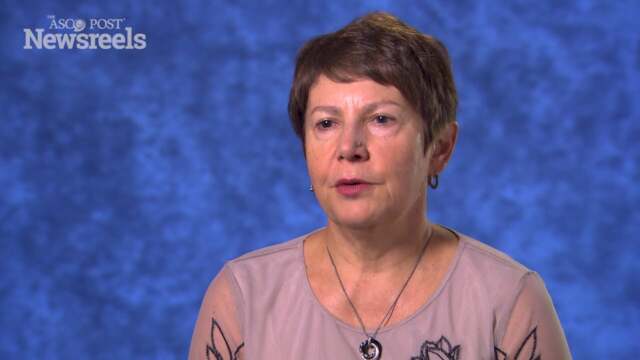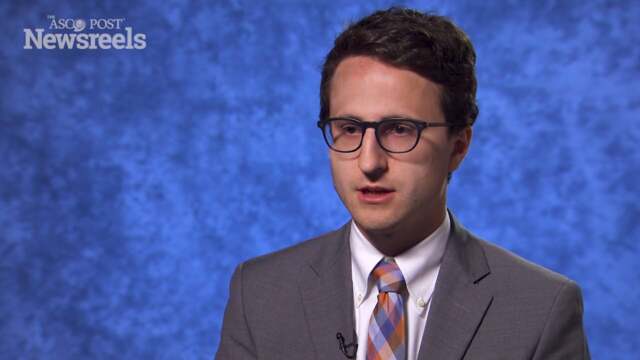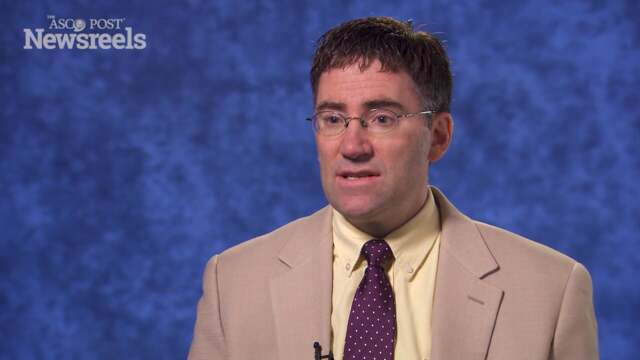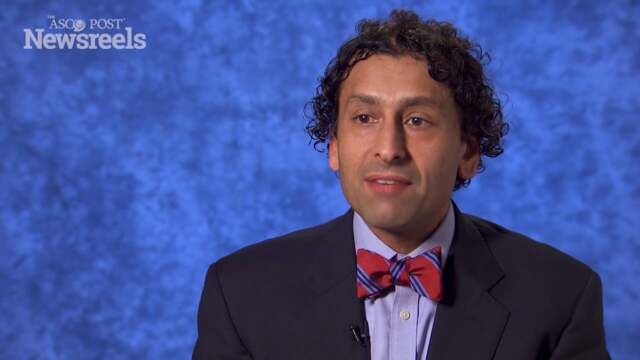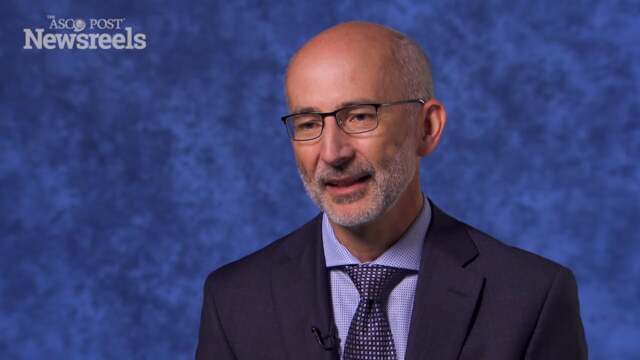Shrinivas Rathod, MD, on NSCLC: Quality-of-Life Outcomes From an IAEA Trial
2017 ASTRO Annual Meeting
Shrinivas Rathod, MD, of the University of Manitoba, discusses phase III study results on optimization of treatment of advanced non–small cell lung cancer using radiation therapy and chemotherapy (Abstract 223).
Maria Werner-Wasik, MD, of Thomas Jefferson University Hospital, summarizes a session on NSCLC that included discussion of a quality-of-life trial on optimizing treatment; chemotherapy and radiotherapy in advanced disease; a comparison of standard- vs high-dose conformal chemoradiotherapy; and long-term results on a comparison of two stereotactic body radiation therapy schedules in inoperable stage I disease (Abstracts 223, 224, 227, 33).
James E. Bates, MD, of the University of Florida, discusses a volumetric dose-effect analysis of late cardiotoxicity, results from the Childhood Cancer Survivor Study (Abstract 4).
Christopher R. Kelsey, MD, of Duke University Medical Center, discusses reducing the radiation dose from 30 Gy to 20 Gy for patients with diffuse large B-cell lymphoma. Phase II findings show this approach may be effective in light of improved systemic treatment and better chemotherapy response assessment (Presentation 298).
Bhishamjit S. Chera, MD, of the University of North Carolina, discusses quantification of human papillomavirus 16 in circulating tumor DNA during de-intensified chemoradiation therapy for favorable-risk HPV-associated oropharyngeal squamous cell carcinoma (Presentation 92).
Gerard Morton, MD, of Sunnybrook Odette Cancer Centre, summarizes a session that included discussion of late toxicities of radiotherapy for locally recurrent prostate cancer; using chemotherapy instead of radiation in early-stage seminoma; radiotherapy vs surgery plus radiotherapy in Gleason score 9–10 prostate cancer; and an analysis of the IROCK study on kidney cancer (Abstracts 1, 1089, 282, 330).
